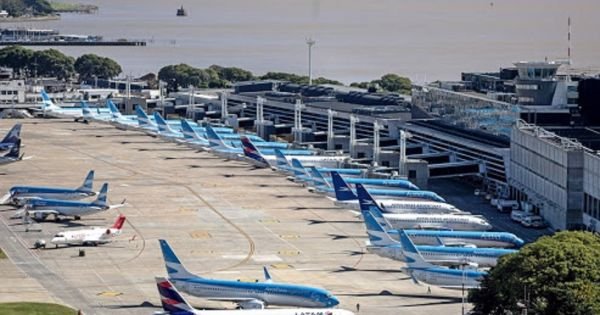Brazil and Argentina agree on reciprocal open skies policy
[ad_1]
Brazil and Argentina agree on reciprocal open skies policy
The new understanding replaces rules dating back to 1948
The governments of Brazil and Argentina agreed this week to a reciprocal open skies policy, Itamaraty Palace sources in Brasilia confirmed. Under the new legal frame, there will be no restrictions to carriers -both passenger and cargo- to open as many routes as they wish.
All Brazilian and Argentine airline companies will be free to determine the number of flights they intend to offer between the two countries, Brazil’s Foreign Ministry explained in a statement. Prior to this deal, the companies of each side were limited to offer, together, a maximum of 170 weekly flights, according to the regulations of each country, the document elaborated.
This measure will give more flexibility to the companies to plan their operations and will allow an increase in the offer of services and a broadening of competition on the routes linking Brazil and Argentina, the document went on after a memorandum of understanding (MOU) was signed the two countries’ National Civil Aviation Agencies.
The agreement is expected to boost connectivity between South America’s two largest economies, particularly regarding the so-called secondary routes (those not serving any major city). It would also allow for additional frequencies linking Buenos Aires with Sao Paulo and Rio de Janeiro.
Although Buenos Aires has numerous non-stop flights to and from Brazil’s main destinations, they barely cope with the increasing demand, according to aviation experts.
The new initiative represents an update from the existing legal framework for air travel between the two countries dating back to 1948. It should also represent an important step forward for the region as the price of tickets is expected to go down amid growing competition.
The MOU also reaches cargo operations, allowing airlines from both countries to perform international freight services regardless of whether the whole route of the goods starts or ends in either country. Brazil has negotiated similar rights for operations involving Chile, Costa Rica, Cuba, Panama, Paraguay, Peru, the Dominican Republic, Uruguay, and Venezuela.
[ad_2]
Source link




